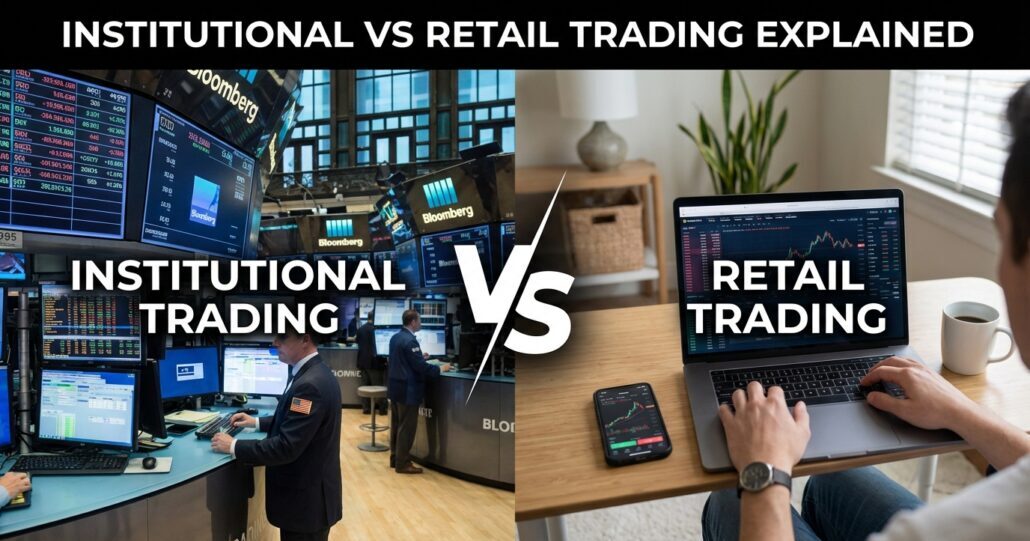Regulations Every Investor Should Know About Brokers in Qatar
 Sam Reid
Staff Writer
Sam Reid
Staff Writer 
Summary
Introduction: Why Regulation Matters for Investors
Qatar’s position as one of the Gulf’s fastest-developing financial hubs has attracted both institutional and retail investors from around the world. The country’s robust regulatory framework ensures that capital markets remain transparent, efficient, and compliant with international standards. For investors, this means confidence that every trade executed through a licensed broker is backed by oversight from the Qatar Financial Markets Authority (QFMA) and the Qatar Stock Exchange (QSE).
Whether you are an expat, a local resident, or an international investor, understanding how brokers operate under Qatari law can help you make better decisions, minimize risk, and maximize opportunity. Let’s explore what you need to know before trading through brokers in Qatar.
The Foundation of Qatar’s Market Regulation
The modern Qatari capital market traces its roots to 1995, when the Doha Securities Market was established. Following economic reforms and increased foreign investor participation, it evolved into the Qatar Stock Exchange in 2009. Today, the QSE operates as a regulated secondary market where securities are traded only through licensed brokerage companies.
The Qatar Financial Markets Authority (QFMA) acts as the primary regulator overseeing all securities-related activities. It sets licensing requirements, supervises brokers, and ensures compliance with trading and settlement rules. Any entity wishing to provide brokerage services must obtain QFMA authorization, demonstrate financial soundness, and follow the operational code of conduct.
This system guarantees that all brokers, whether local or international online brokers in Qatar, adhere to high standards of transparency, investor protection, and ethical trading.
How Brokerage Companies Operate in Qatar
Licensed brokerage firms play a vital intermediary role in the Qatari stock market. Investors cannot directly buy or sell securities among themselves; all trades must be executed through a licensed broker approved by the QSE. The broker acts as an agent, handling order placement, transaction execution, and settlement through the central clearing system managed by the Qatar Central Securities Depository (QCSD).
Brokerage commissions are fixed by regulation. QSE-authorized brokers typically charge a commission of 0.00275 (QR 2.75 per QR 1,000 of transaction value) with a minimum of QR 30 per transaction per investor. Additional premium services can be offered with prior approval from the QSE.
There are currently several licensed firms operating within Qatar, and investors should verify a broker’s licensing status via the QSE or QFMA websites before opening an account. Doing so ensures that your trades are executed through a secure, regulated channel.
Investor Eligibility: Local and International Access
Both Qatari nationals and foreign investors—residents or non-residents—are eligible to trade securities listed on the QSE. To participate, each investor must obtain a unique shareholder number known as a National Investor Number (NIN) issued by the QCSD. This number links all ownership records and trading activities to one identity, ensuring full transparency.
After obtaining a NIN, investors can open a trading account with one of the licensed brokers. Orders can then be placed online, via call centers, or in person at the brokerage’s office. International investors are also permitted to trade, though foreign ownership of QSE-listed companies is generally capped at 49% of total share capital, unless otherwise specified by the company or government decree.
How to Open a Brokerage Account in Qatar
Opening a brokerage account in Qatar involves a few structured steps designed to protect investors and ensure compliance with QFMA standards:
- Obtain a National Investor Number (NIN) from the Qatar Central Securities Depository.
- Choose a licensed broker listed on the QSE’s website.
- Submit identification documents, proof of address, and financial information as required by anti-money laundering laws.
- Sign the client agreement detailing your trading rights, commission structure, and service terms.
- Deposit funds into your trading account to begin buying or selling listed securities.
The entire process is streamlined and can be completed within a few days when working with a compliant brokerage company.
Investor Protection and Legal Framework
Qatar’s legal and regulatory framework emphasizes investor safety and market integrity. Brokers must segregate client funds from their operational accounts and maintain sufficient capital to meet obligations. Disputes between investors and brokers are addressed through QFMA’s investor protection unit, ensuring transparent resolution.
The QSE also enforces trading halts and disclosure rules to prevent insider trading and market manipulation. Listed companies must publish financial statements quarterly, allowing investors to evaluate corporate performance before making decisions.
These measures collectively create a fair, transparent, and well-regulated environment where both local and international online brokers in Qatar can operate with confidence.
The Rise of International Brokers and Global Integration
Qatar’s openness to foreign participation has encouraged several global brokerage brands to expand their presence. While some operate through local partnerships, others provide access to Qatari investors via digital trading platforms. Among these, Interactive Brokers and other cross-border institutions are known for offering advanced trading tools, multi-asset access, and strong compliance frameworks aligned with international standards.
However, many local traders still prefer regionally familiar brokers such as Exness, which cater to Gulf-based investors by offering Islamic trading accounts, low spreads, and user-friendly deposit options through regional payment providers. Exness remains one of the more accessible choices for investors looking to diversify into forex and CFDs while maintaining a connection with the Qatari market environment.
Foreign Investment Law and Ownership Reforms
The landmark Foreign Investment Law of 2019 reshaped Qatar’s investment landscape by allowing foreign investors to own up to 100% of a company in most sectors, excluding banking, insurance, and defense. This significant reform has increased international investor confidence and positioned Qatar as one of the most open economies in the Gulf region.
For brokerage and trading activities, the law supports the entry of global financial service providers through regulated channels. It also strengthens investor protections by mandating transparent disclosure, fair pricing, and compliance reporting.
Taxation and Trading Costs
One of Qatar’s main attractions for investors is its tax efficiency. There is no personal income tax, no capital gains tax on securities, and no tax on dividend income. Only business income that is derived from commercial activities is taxed at 10%.
Trading costs, aside from the fixed brokerage commission, remain minimal. There are no stamp duties or withholding taxes on stock transactions, making the Qatari market particularly appealing to long-term investors and active traders alike.
Key Tips for New Investors
- Always verify your broker’s QFMA license before depositing funds.
- Understand the trading hours and order types supported by the QSE.
- Keep your investment diversified across sectors such as banking, industrials, and real estate.
- Monitor the QSE Index and company financial reports for performance insights.
- Use educational materials and publications offered by QSE to deepen your market knowledge.
These foundational steps not only ensure compliance but also help investors build a disciplined approach to trading in Qatar.
Conclusion
Qatar’s capital market continues to mature under strong regulatory supervision and investor-friendly policies. Whether through local institutions or international online brokers in Qatar, traders can access a well-structured marketplace that combines transparency with global accessibility. As the economy diversifies and financial literacy grows, brokerage companies, both domestic and international, will remain central to connecting investors with opportunities in one of the Gulf’s most resilient economies.
Choosing a broker that aligns with your goals, offers transparent fees, and adheres to strict compliance standards is the key to successful investing in Qatar. Platforms like Exness exemplify this balance of accessibility and regulation, making them a practical option for those entering the Qatari market.
FAQs
Which broker is best for trading in Qatar?
The best broker depends on your trading goals. For regional investors, locally licensed brokers listed on the QSE are ideal for stock trading. For those seeking multi-market access, regulated international online brokers in Qatar such as Exness provide advanced platforms with global reach.
How do brokers help investors?
Brokers act as intermediaries between buyers and sellers, executing trades, providing market insights, and offering portfolio tools. They ensure that all transactions comply with QFMA regulations and are settled securely through the Qatar Central Securities Depository.
Is trading legal in Qatar?
Yes. Trading is fully legal in Qatar when conducted through a licensed brokerage company authorized by the QSE and QFMA. Both Qatari citizens and expatriates can trade stocks, mutual funds, and ETFs listed on the exchange.
How to open a brokerage account in Qatar?
To open a brokerage account, investors must first obtain a National Investor Number (NIN) from the Qatar Central Securities Depository, then select a licensed broker, complete KYC documentation, and fund their trading account. The process is straightforward and generally completed within a few days.
 07th Oct 2025
07th Oct 2025








